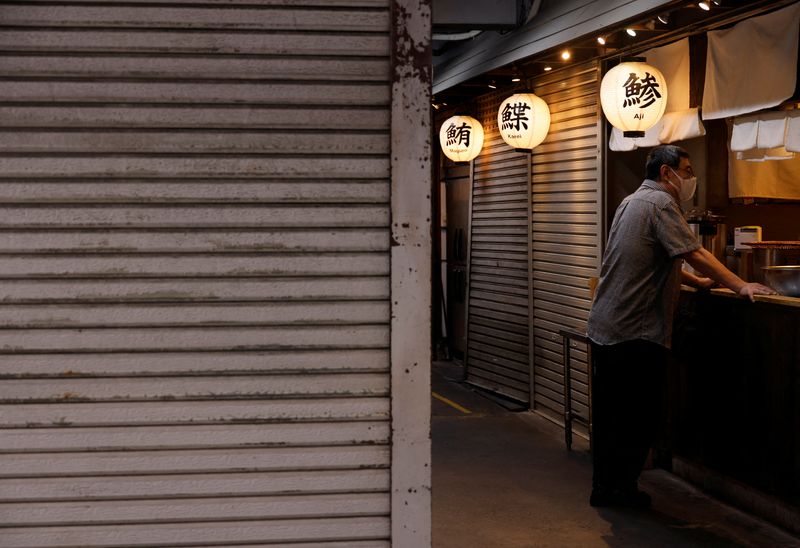
[ad_1]
 © Reuters. FILE PHOTO: A man stands at a tempura restaurant at Tsukiji Outer Market in Tokyo, Japan June 23, 2022. REUTERS/Issei Kato
© Reuters. FILE PHOTO: A man stands at a tempura restaurant at Tsukiji Outer Market in Tokyo, Japan June 23, 2022. REUTERS/Issei KatoTOKYO (Reuters) – Japan’s service sector activity grew in November at the slowest pace in three months, as relentless inflation dampened a part of the economy that was benefiting from the return of domestic and foreign shoppers and easing COVID-19 restrictions.
The final au Jibun Bank Japan Services purchasing managers’ index (PMI) fell to a seasonally adjusted 50.3 from October’s 53.2, hitting the lowest since August.
The index however stayed above the 50-mark that separates expansion from contraction for a third straight month and was slightly better than the flash reading of 50.0 for November.
Behind the soft headline figure were inflationary pressures that “remained marked with rates of input cost and selling price inflation remaining well-above their respective historical averages,” said economist Laura Denman at S&P Global (NYSE:) Market Intelligence, which compiles the survey.
A separate government survey on Thursday showed Japan’s consumer confidence index fell in November to the lowest since June 2020 given the price inflation that marked the fastest increase in 40 years.
However, the PMI survey showed input costs for service operators rose at the slowest rate in November, indicating easing burdens for the consumer-facing sector.
“Anecdotal evidence suggested that a boost in demand following a sustained COVID-19 recovery and the launching of the National Travel Discount Programme primarily drove the sector expansion,” Denman added.
The sub-index of new export businesses hit a seven-month-high, after Japan relaxed border controls in October.
The composite PMI, which is calculated by combining the manufacturing and services figures, fell to 48.9 in November from the previous month’s 51.8 final, weighed by shrinking factory activity.
[ad_2]